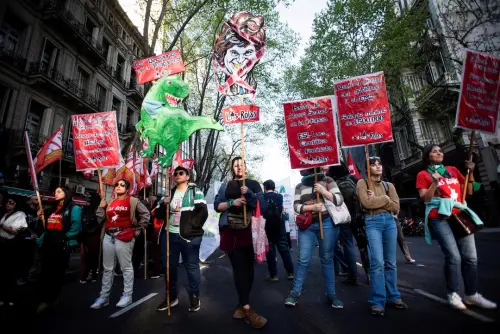Latin American activists have raised concerns about increasing political challenges to reproductive rights in the region, reminiscent of the context in the U.S.
Paula Avila-Guillen, executive director of the Women's Equality Center, highlighted the backlashes against progress in human rights and stressed the interconnectedness of the situation across countries.
Various Latin American nations have diverse stances on reproductive rights, with El Salvador enforcing some of the strictest abortion laws globally, and Colombia permitting abortion up to 24 weeks post-conception.
Significant restrictions impact women's access to abortion in many regional countries, often leading to delays beyond gestational limits, particularly for cases involving life-threatening pregnancies or rape.
In Argentina, where abortion is legal, activists criticized government budget reductions that have impeded abortion access and limited contraceptive supplies.
Amnesty International Argentina's Mariela Belski emphasized the adverse consequences of funding cuts, underscoring a significant setback reminiscent of the 1960s in terms of contraceptive availability.
State budget reductions not only affected a national gender violence helpline but also caused shortages of vital abortion drugs in several provinces.
Contrary to the pro-choice stance, some, like Milei, argue against abortion spending as part of a negative ideology.
Despite Argentina allowing abortion up to 14 weeks of pregnancy without specific conditions, recent legislative efforts aimed to criminalize abortion, reflecting ongoing societal debates.
Unsafe abortions remain a global health concern, particularly in Latin America, where a significant portion of maternal deaths is attributed to unsafe procedures.
In the Dominican Republic, where abortion is prohibited, grassroots movements are striving to reduce criminal penalties due to high maternal mortality and teenage pregnancy rates.
Natalia Marmol, from the Women's Equality Center, emphasized the importance of perseverance in the face of setbacks, urging continuous efforts to prevent a regression in reproductive rights.
